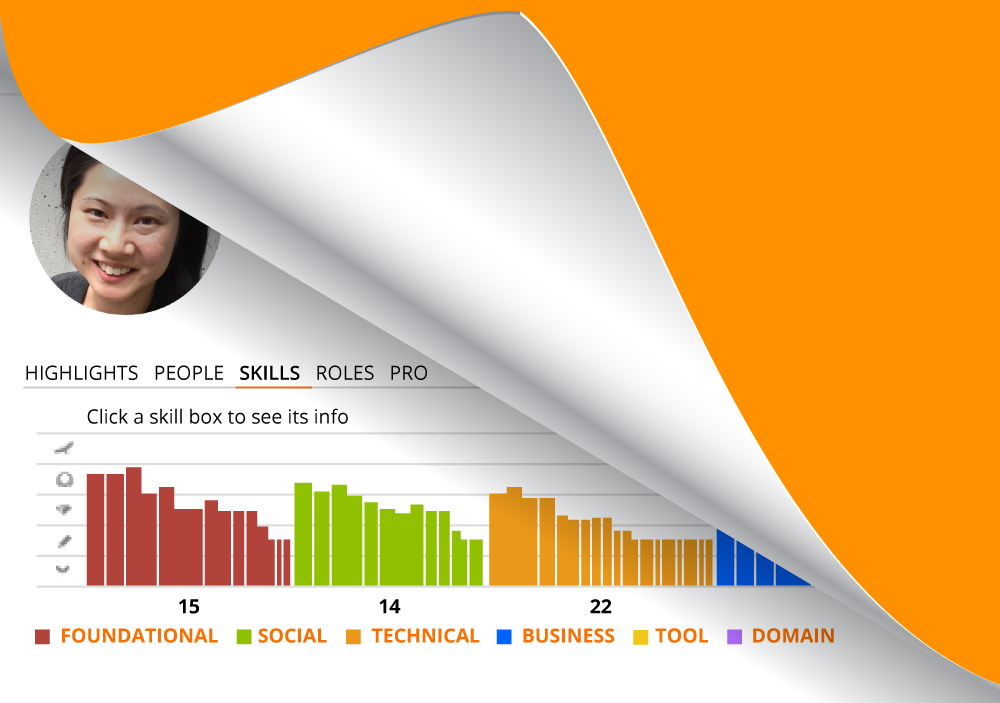What does your Skill Map reveal?
Your skill profile is as unique as you are, but unlike your fingerprints, your profile adapts with experience and you can intervene to shape these changes.
Skills are the new currency of work. This is especially in the professional services industry where capability is intrinsically tied to value. Knowing your skill signature is critical to shaping your skill growth.
Ibbaka Talent provides a visual representation of your skills in the form of a Skill Map. The Skill Map helps you to do this and works for you as an individual, the teams you work on and for your company as a whole.
Skills are organized into seven basic categories on the Skill Map. The seven categories of skills are:
Foundational—Used to develop other skills
Social—Used to work with others
Technical—Used to advance technology
Business—Used to advance and conduct business
Tool—Ability to use devices, applications, or resources to get a job done
Domain—Understanding an industry or field of knowledge
Design—Used in creative work to come up with design solutions

When I look at my Skill Map, a preview of TeamFit V.2, it shows that I am heavily slanted on business. That is the long line of blue skills that you see.This is not surprising given that my entire career has primarily focussed on, and continues to focus on, roles related to business, strategy and operations. I am pleased to learn that the categories that follow next are technical (orange), foundational (red) and social (green).
I was somewhat surprised to see that I have so many technical skills, as I don’t usually think of myself as highly technical. Rather, I surround myself with technical people and rely on them for technical insights and work. I have a lot of skills that complement those with technical skills. Having been in the technology industry for over 20 years, I think of these technical skills as a reflection of my domain knowledge.
Foundational skills are key to acquiring new skills. This is something that we all need to understand and invest in. Knowing what skills, methods and approaches we use to build our capabilities can really help shape how we learn and gain new skills. TeamFit suggests that my top three foundational skills are Knowledge Management, Active Listening and Leadership.
Social skills are critical in our fast-paced collaborative world. This is something I continually need to work on. In future, I would like to see my Skill Map evolve to have more of a balance in strength between business, social, foundational and domain skills. Why? Because, I believe that this is the combination that will help me to add to the value I bring to my teammates. It is also how I can differentiate myself to complement others. This is the insight TeamFit provides me.
Now, what about you? What does your Skill Map reveal for you? What insight will you get from TeamFit? And how will this shape your aspirations for your skill signature? Does TeamFit confirm how you see the value of the skills you bring to your teams or is it showing you another alternative? Watch for TeamFit V.2. Get ready to see your unique Skill Map.

